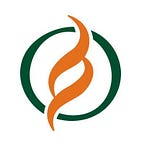World Mosquito Day on August 20 serves as an important reminder that malaria remains a global threat even as the world continues to fight the COVID-19 pandemic.
In Madagascar, community health volunteers (CHVs) serve on the frontlines in the effort to eradicate malaria, which is one of the biggest killers of children under five and pregnant women.
Often pillars in their communities, these volunteers promote prevention techniques such as the use of insecticide-treated bed nets and provide testing and treatment to stem the deadly impact of the mosquito-borne disease.
Targeting pregnant women and young children
Management Sciences for Health (MSH), the lead implementer of the US Agency for International Development (USAID) Accessible Continuum of Care and Essential Services Sustained (ACCESS) program, collaborates with the Ministry of Public Health (MOPH) to support these CHVs in the identification and education of those at greatest risk of contracting this preventable and treatable infectious disease.
Today, more than 18,000 CHVs have been supported by the USAID ACCESS program with skills and tools for malaria prevention, diagnosis, and treatment in collaboration with health centers for referrals and outbreak surveillance.
By engaging with pregnant women and young children in their communities, CHVs raise awareness of the importance of regular antenatal visits and intermittent preventive treatment for malaria during pregnancy. ACCESS assists the MOPH in training CHVs to provide integrated management of childhood illnesses, including malaria, diarrhea, and pneumonia.
Door-to-door visits
Insecticide-treated bed nets are a cost effective and straightforward intervention to prevent the mosquito bites that transmit malaria. During regular door-to-door home visits, CHVs demonstrate proper use and encourage people to sleep under the nets, which have saved millions of lives across the globe.
CHVs can also conduct on-the-spot rapid testing if someone presents with a fever or other symptoms of malaria.
Confirmed malaria cases are treated with artemisinin-based combination therapy, a fast-acting antimalarial that helps to prevent life-threatening complications. Complicated cases are directly referred to the closest health center, which helps reduce deaths.
Community-led sanitation wins
Sehatra Andrafetana Hetsika Ara-pahasalamana (SAHA) committees are community-based groups led by the mayor and the heads of local health centers. These committees include community leaders, such as CHVs, who meet with community members to identify key health challenges and draft action plans to address them.
For example, the groups could identify actions for preventing malaria transmission, such as clearing decaying vegetation and standing water where mosquitoes easily breed.
Mass education campaigns
At community meetings and CHV-led weekly group sessions, the volunteers coach villagers on the proper use of bed nets to avoid mosquito bites. Families are taught to recognize malaria symptoms and promote health seeking behaviors. Awareness-raising activities also include TV and radio messaging linked to national and international health promotion days.
Ultimately, CHVs are a lifeline to help prevent, test for, and treat malaria in pregnant women, children, and others living far from health facilities in Madagascar. These volunteers are a core element in the local health care system’s efforts to help communities thrive.
